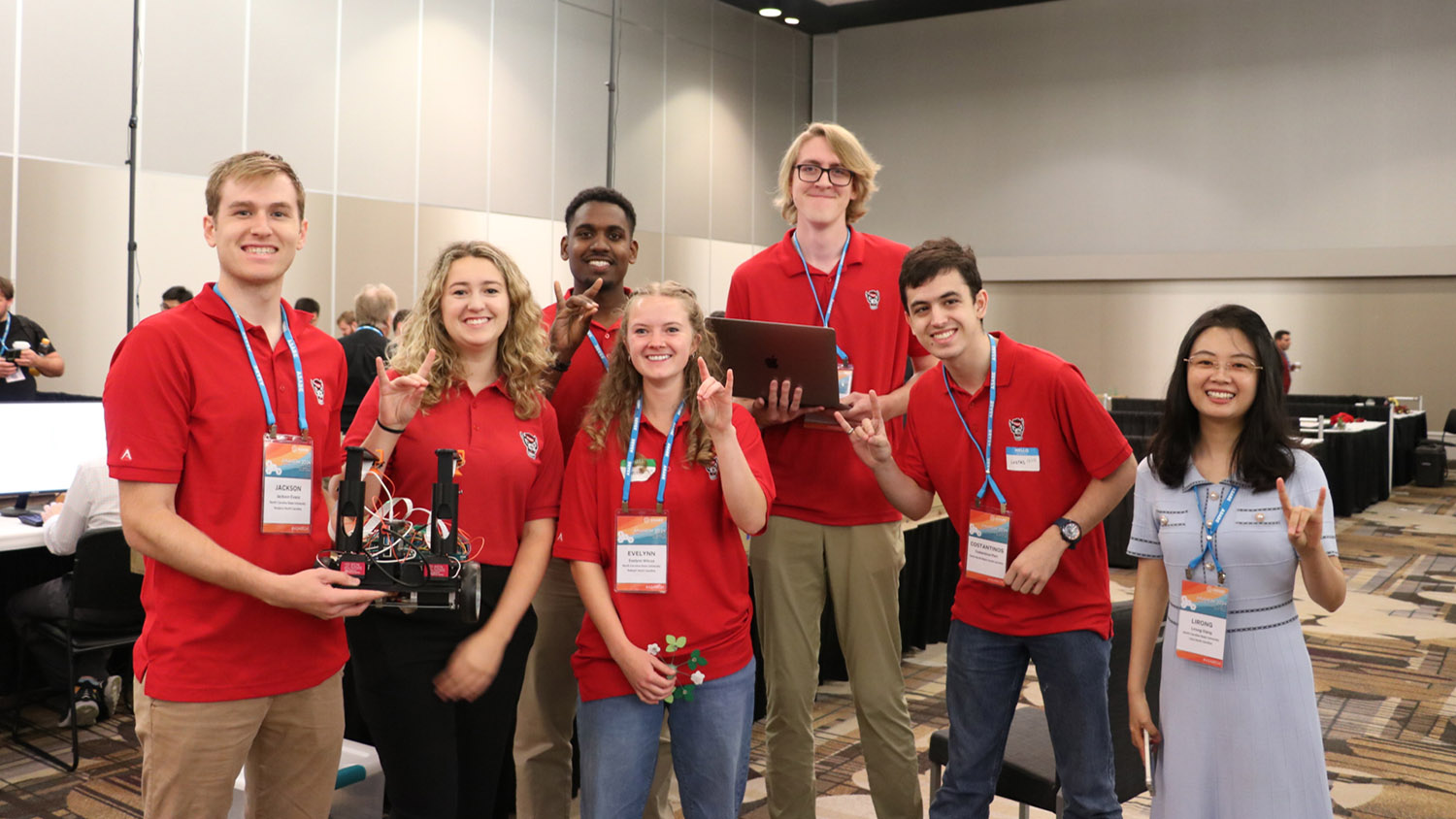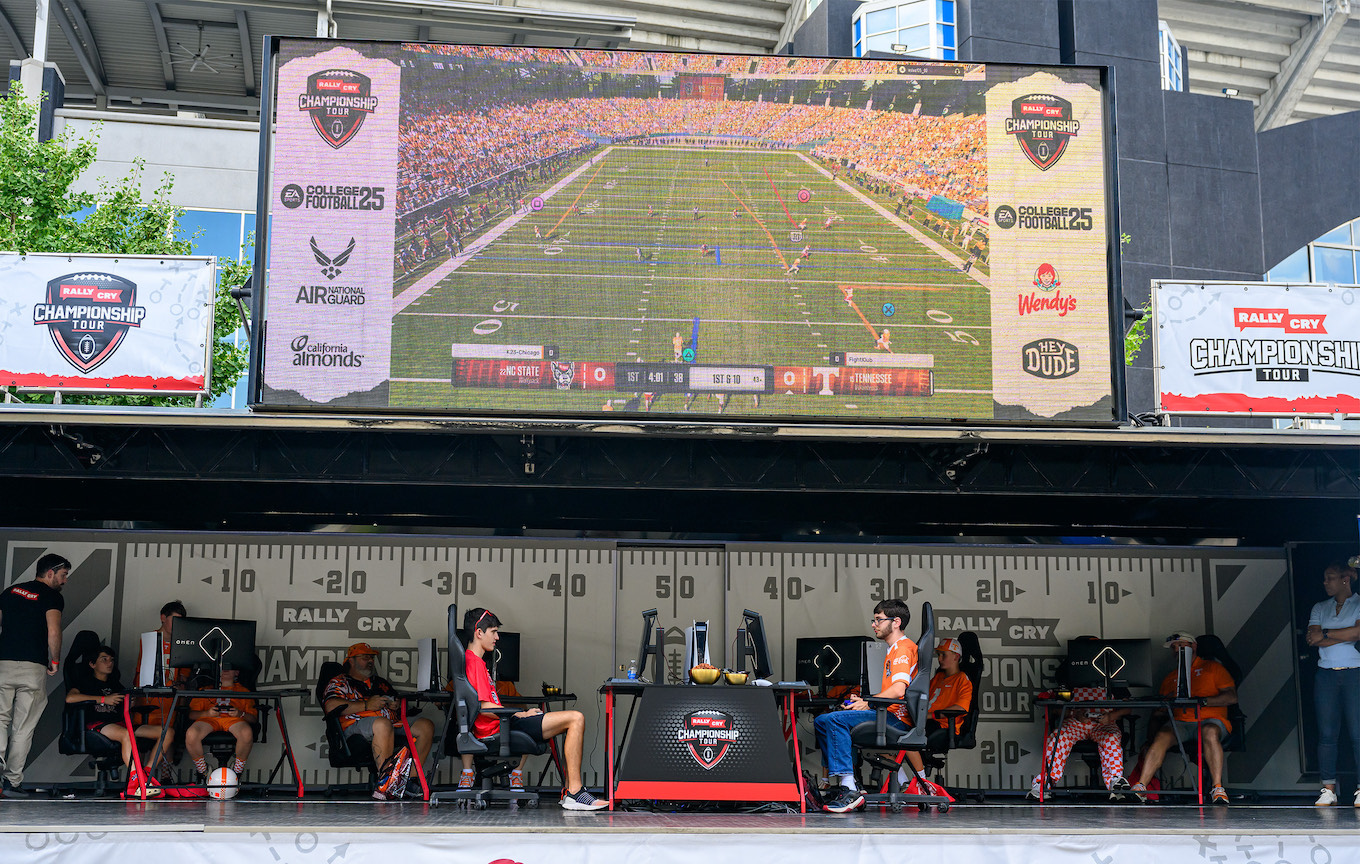College’s graduate programs prioritize recruiting students from a military background


As a beginning graduate student in NC State’s Operation Research (OR) Graduate Program, Dr. Brandon McConnell benefited from the mentorship of an old friend.
McConnell, a former US Army Infantry officer who is now an assistant research professor in OR, knew Ryan Slocum from the United States Military Academy at West Point, from Army Infantry School and from Ranger School. Slocum, then an NC State graduate student as well, was familiar with campus and the department, and was happy to show McConnell the ropes.
It’s a role common to the military, where an officer who switches bases is assigned a sponsor at the new posting to help him or her settle in. Once McConnell, a West Point graduate who earned master’s and Ph.D. degrees at NC State, knew his way around he began passing on his knowledge in much the same way.
“So, I started taking on that role for OR and (Edward P. Fitts Department of Industrial and Systems Engineering) military and veteran students,” he said.
McConnell leads the Military Operations Research Group, which consists of students in OR and Industrial and Systems Engineering (ISE) interested in military and national security challenges. He also mentors and advises the veteran and active-duty students from OR and ISE, which helped lead to this other role as military and veteran recruiting coordinator for the College of Engineering.
The position is part of an effort by the College to prioritize recruiting of graduate students with military ties that is paying dividends. Engineering leads all colleges at NC State in active-duty and veteran graduate enrollment; a third of all active-duty and veteran graduate students at NC State are enrolled in engineering and computer science and 70 percent of enrolled active-duty graduate students are in the College of Engineering.
That includes Carlan Ivey, a May 2019 graduate of West Point with a degree in nuclear engineering and an active duty 2nd lieutenant in the Army. Ivey is currently enrolled in the master’s program in ISE. When searching for the right graduate program, Ivey was impressed by the effort that McConnell and others in the ISE department put into making him feel like a priority.
“We toured the campus, sat in a seminar, and enjoyed lunch at Mitch’s Tavern,” he explained. “The department and the faculty invested their time and effort into me, which went far beyond anything other institutions could offer. This effort was a clear indication that I should join the Wolfpack.”
McConnell makes it a priority to reach out to any active-duty or veteran students who have expressed an interest in graduate studies in COE. There are several reasons for the College to be interested in recruiting and retaining these students, McConnell said, including their strong communication skills, confidence and ability to focus on completing the tasks at hand.
And these students align with the College’s desire to attract domestic graduate students from a broad range of backgrounds and from groups that are historically underrepresented in engineering. McConnell points out that engineering students with a military background are twice as likely to be first-generation college students.
And the payoff for students who choose NC State Engineering is significant.
“We’re a low-cost school but we’re high value for the family,” McConnell said. “We’re high value for the active duty officer. We’re high value for the veteran.”
Students with a military background who are interested in more information on graduate education in engineering or computer science at NC State are encourage to contact McConnell at 919.515.7201 or mcconnell@ncsu.edu.
— Robert Lasson contributed to this report.


